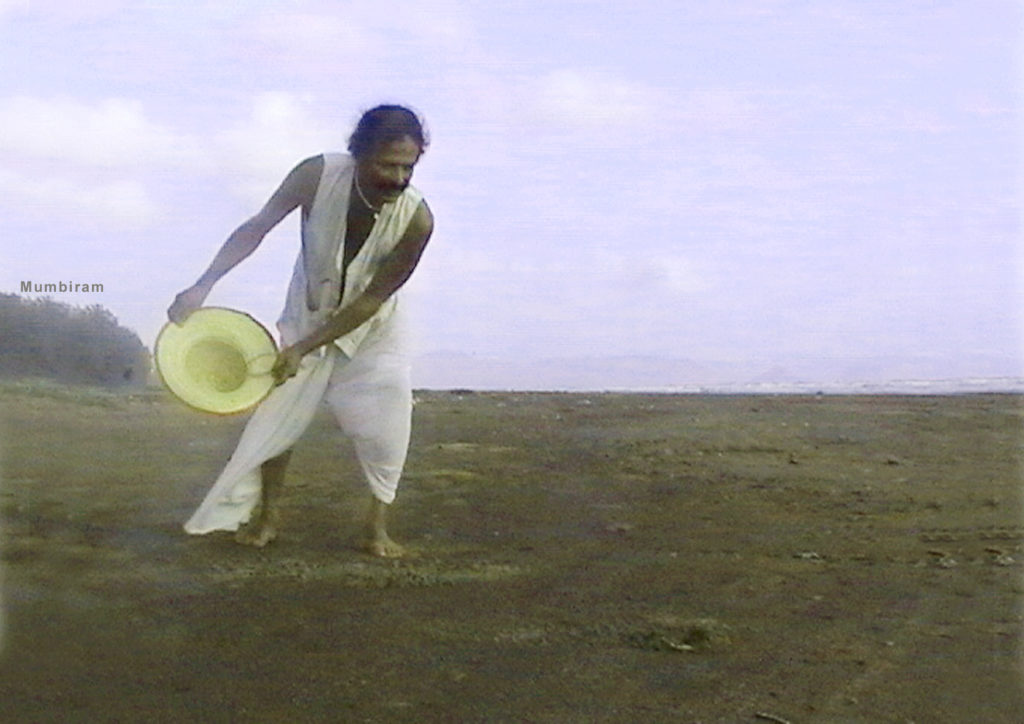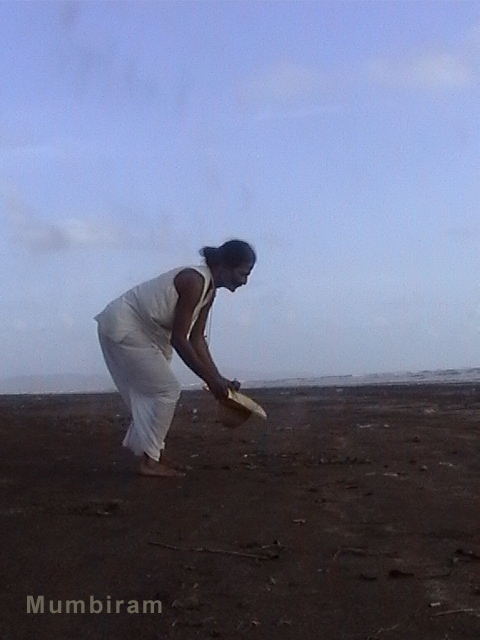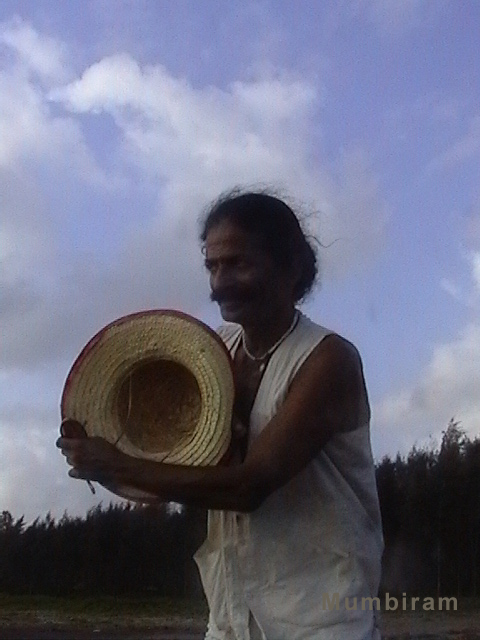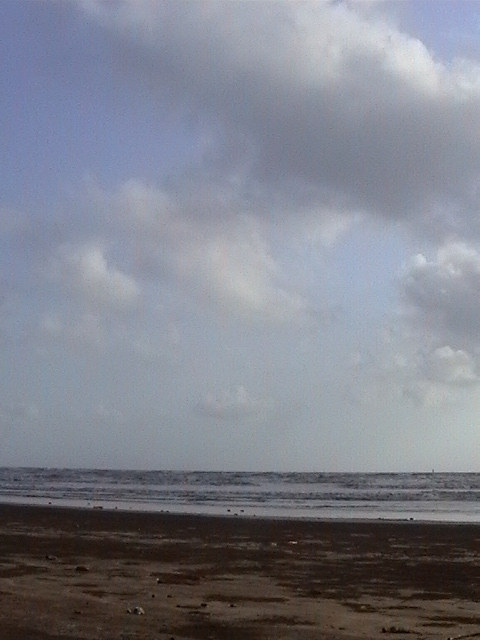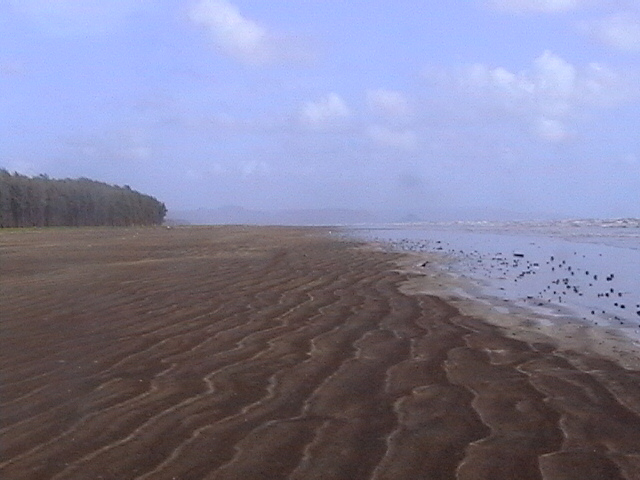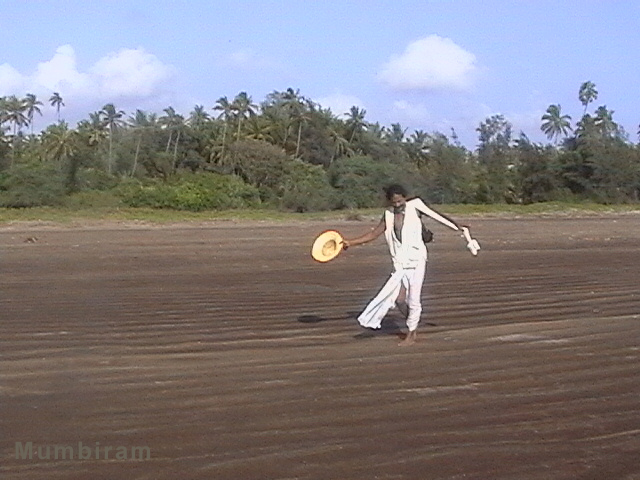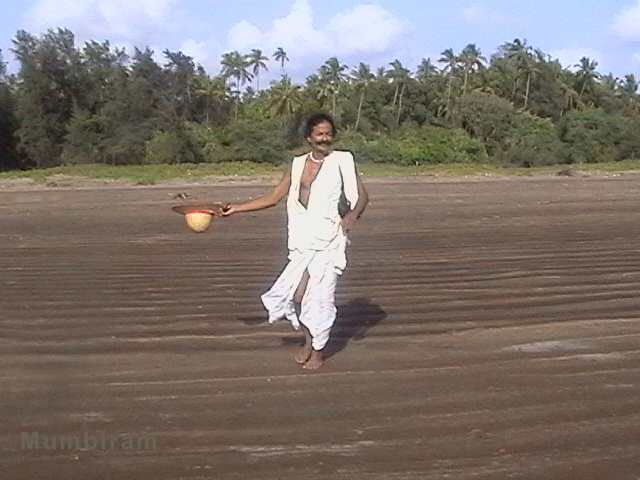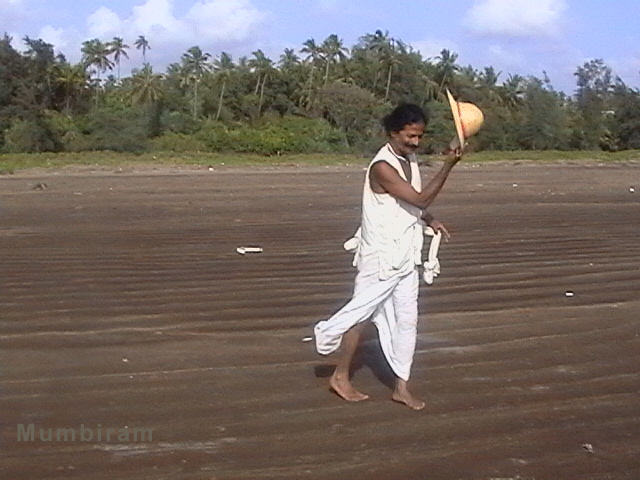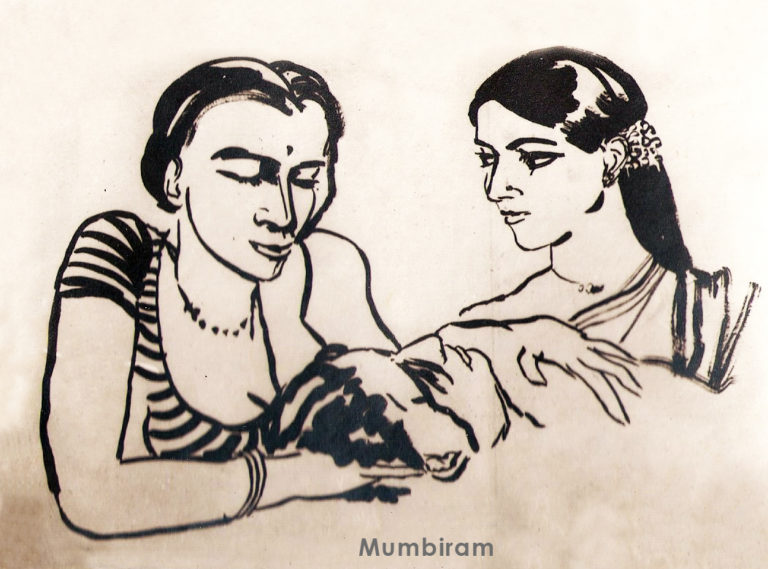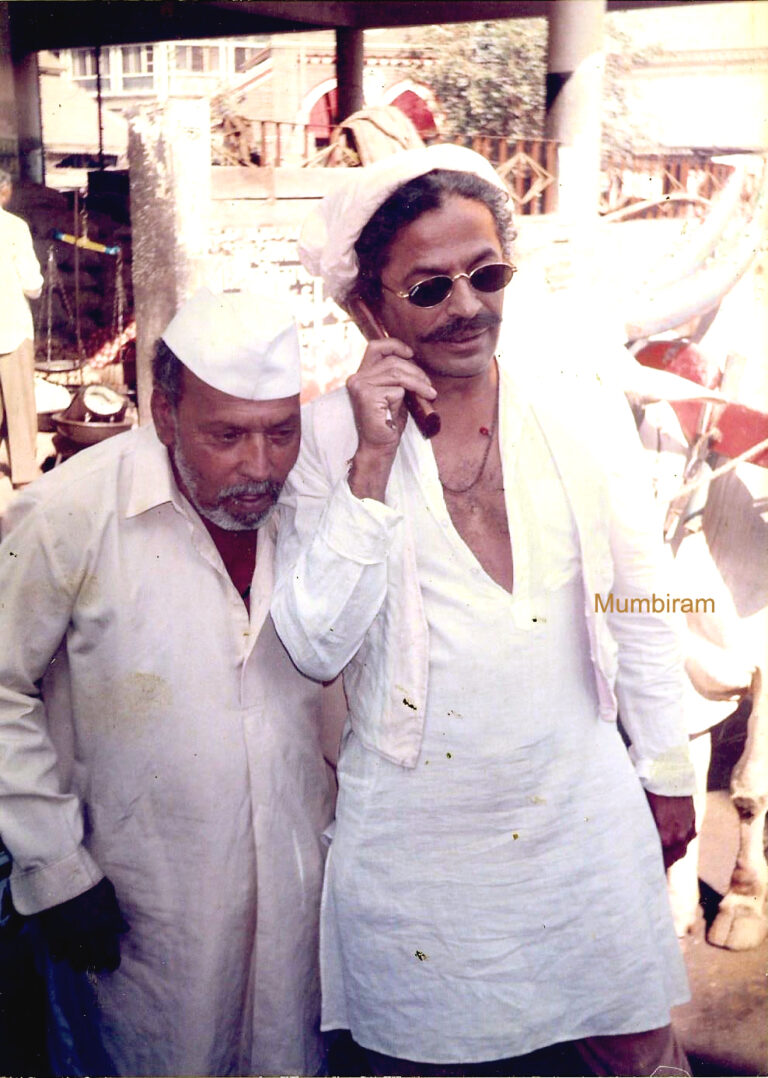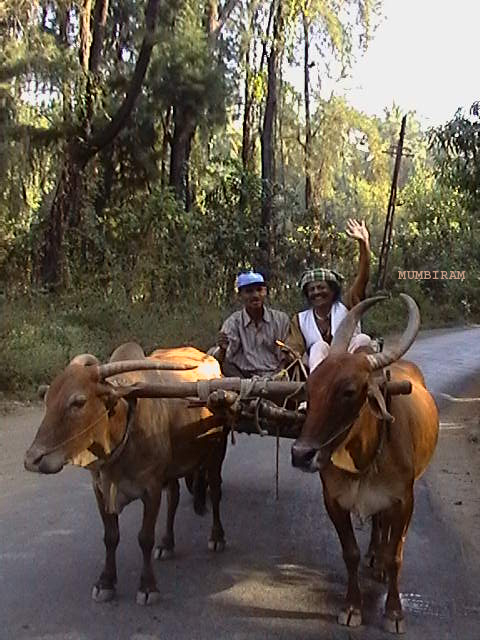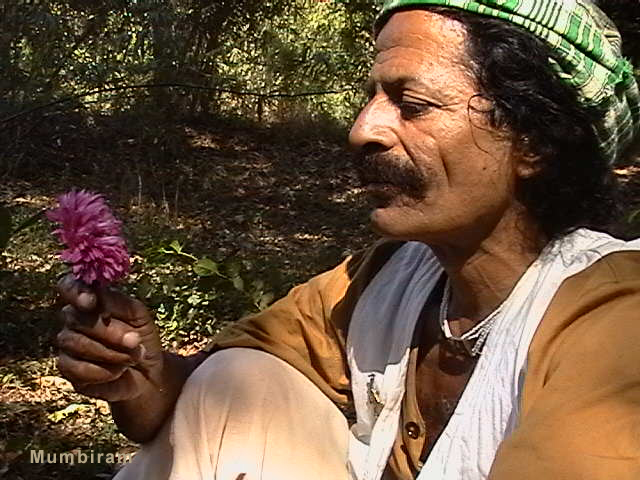This ‘leela’ is from May 2004. It is early afternoon hot May sun. It is the season for quick appearance and disappearance of premonsoon dark clouds. This is Raiwadi beach. Mumbiram and Vrinda have walked from their residence in Raut Galli in Akshi. Here again the straw hat is the accessory that has been used as the prop needed for the costume drama that Mumbiram was spontaneously inspired to. The extraordinary noble poem that so amazingly fits the whole
episode was not explicitly on the minds of either Mumbiram or Vrinda. Mumbiram had encountered the poem over 40 years earlier when he was a young student in Pune.
Mumbiram’s artistic journey and his spiritual evolution have gone hand in hand. It is all about listening to the inner voices, the clues, that are coming as if from paramatma. Mumbiram’s dhoti is flying gracefully in the wind. Mumbiram wears the dhoti in the Bengali vaishnava mode, not the Maharashtra style. His kopri has a deep V-neck. It is custom-made for him by his tailor. He is having a second dhoti neatly folded along the length with balast knots on either end. These balast knots are Mumbiram´s hands-on invention. This second dhoti rests on his shoulders. It is used as an accessory that gives rhythm and timing to his walk much like a metronome. It comes handy when Mumbiram swings it around when he dances.
The whole ensemble is simple and functional. It is all plain white and pure cotton. The straw hat fits remarkably well in the otherwise all Indian outfit. That is because it is very functional. In Mumbiram’s hand it gets used in a most versatile manner. The noble poem fits not only the act that Mumbiram is inspired to but even the clouds and the sand and the wind. One can only say that lucky were they who saw this peacock dancing in the jungle.
